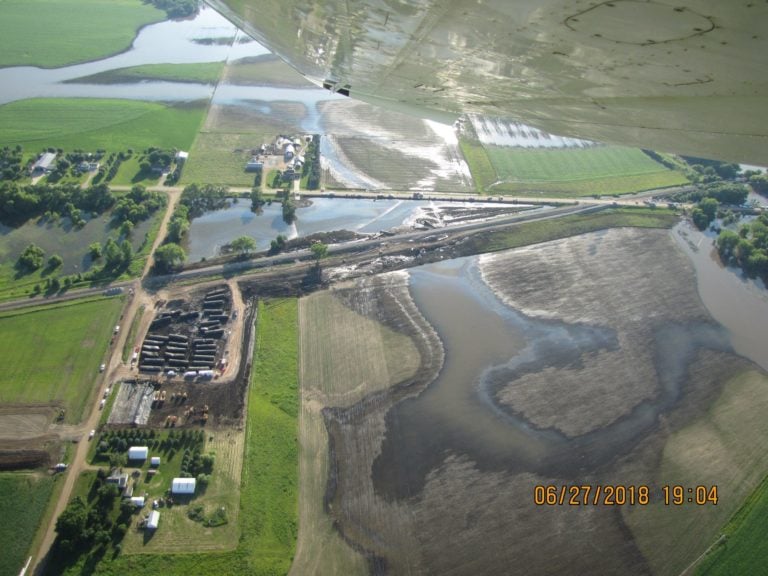Tar Sands Oil Spilling Into Little Rock River Following Doon Trail Derailment
By: Waterkeeper Alliance

Following the derailment of 32 train cars carrying tar sands oil from Alberta, Canada, to Stroud, Oklahoma for ConocoPhillips, Quad Cities Waterkeeper and LightHawk conducted an aerial investigation of the oil spill in Doon, Iowa. An estimated 230,000 gallons of oil spilled into the flooded waters of the Little Rock River.
Images from the investigation can be found here.
This accident highlights the continued threat of crumbling U.S. railroad infrastructure highlighted in Waterkeeper Alliance’s 2015 Deadly Crossings report. Oil trains, deteriorating railways, and inadequate federal oversight of rail bridges threaten the safety of millions of Americans, our waterways, and the environment. Since 2008, oil train traffic has increased over 5,000 percent along rail routes leading from production fields in central Canada, the Great Plains, and the Rockies to refineries and crude oil hubs along our nation’s coasts. There has also been a surge in the number of oil train derailments, spills, fires, and explosions. More oil was spilled from trains in 2013 than in the previous 40 years combined.
“We have been protesting tar sands in our community for years. The spill that has happened in Doon is exactly what we fear will occur with the continued transport of these toxic materials through our communities,” said Art Norris, Quad Cities Waterkeeper. “These images reveal the dangerous impacts to our waterways from crude oil transportation via unsafe railways and hastily permitted pipelines.”
“The Doon train derailment shows, yet again, that the extraction, transport, and combustion of fossil fuels are at the root of so many of the problems we face, from water pollution to climate change,” said Daniel Estrin, Advocacy Director and General Counsel of Waterkeeper Alliance. “We must prioritize a faster transition to clean renewable energy.”